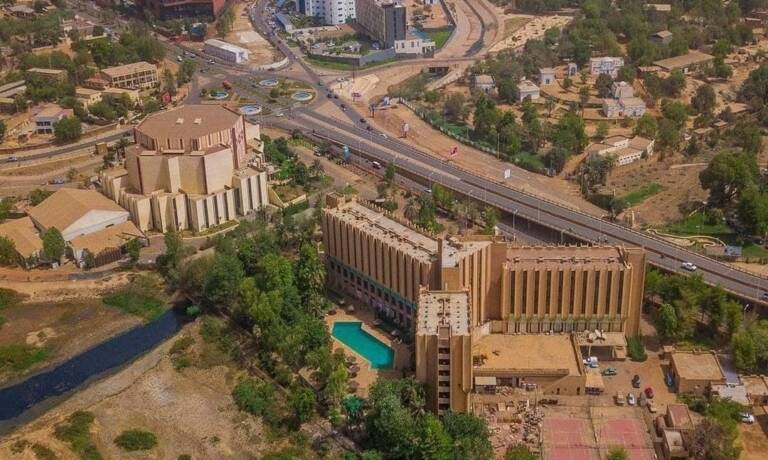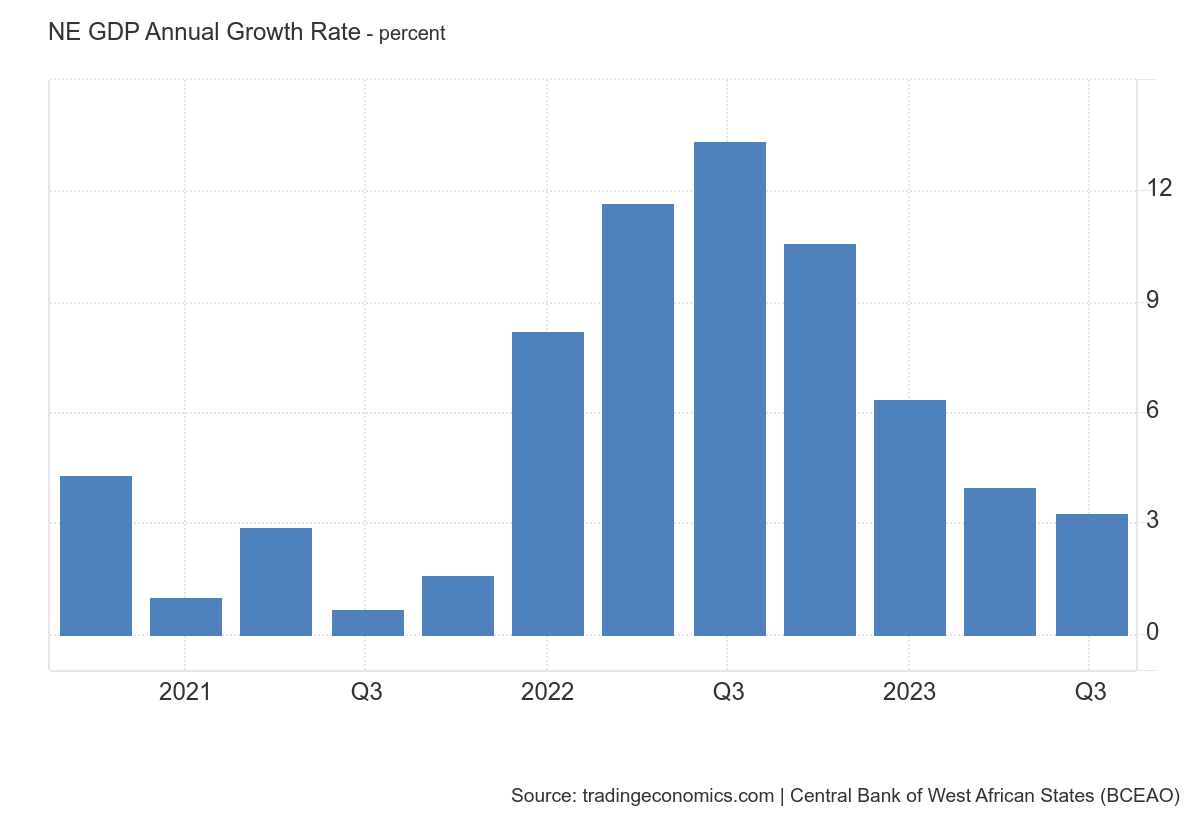Can Niger be the fastest growing country in Africa?

Niger does not appear to be one of the most promising countries from an economic point of view, especially after the coup led to the cutting of relations with many countries and with the EU, yet, according to a March 1 report by the African Development Bank (AfDB ), the country's GDP could increase by 11.2% in 2024, after growth of 4.3% in 2023, as reported by Le Monde .
These “growth forecasts assume a gradual return to normality,” which includes “the lifting of sanctions [in force since February 24] and the return of financing,” the World Bank said. They are also based on the assumption that 90,000 barrels of oil per day will be exported through the pipeline connecting the Agadem field to the port of Sèmè in Benin, which is expected to generate around 610 million euros in tax revenue for Niger by 2025. Currently the Niger exports 20,000 barrels a day, so it is possible that oil exports will quadruple. On March 2, the Chinese company CNPC, responsible for the project, announced the commissioning of the pipeline, allowing the first barrels to leave the country within two months.
These are optimistic data, but they should be taken with a certain degree of caution: first of all, it is taken for granted that sanctions will completely disappear, which is true for ECOWAS , but not completely certain for Western countries. It is also taken for granted that all is well in the exploitation of the country's oil resources, but given Nigeria's experience, we know that there can always be sabotage and accidents.
All prospects must be verified
Why is there this growth prospect? A part can be simply linked to the increase in the expected price for products exported from Niger, such as Uranium and Oil: "It is important to understand if the growth is due to a volume effect, in which case Niger has conquered new markets and is exporting moreover. Or if this rate is the consequence of a price effect. In other words, the situation has not changed and the country is only benefiting from higher prices. In this case, if compared with the country's inflation rate, this growth rate would have no positive effect on the population", underlined Emilie Laffiteau to Le Monde
Then this growth is however linked to a series of factors, some of which have very uncertain effects:
- first of all there is a problem linked to the economic structure of the country, still dependent on exports from the primary sector, i.e. mining, which makes the country dependent on fluctuations in the global market for raw or agricultural materials. The service and industrial sectors are still in their infancy in the country, so growth lacks stability.
- at the same time there is a problem of the informal economy, such as the agricultural one, which creates a little well-being, but not tax revenues. The certain revenues for the Nigerian state are mainly linked to mining activities, but uranium exports represent only 6.52% of the state's revenues. Evidently too many exemptions have been left in place, or too much uranium comes out in the “black”;
- then there is the problem of political stability. Not only is the current government not recognized, but the country is also threatened by an ever-present and bloody jihadist guerrilla war.
Until the coup d'état led by General Tiani, 40% of the state budget depended – according to the military regime – on so-called non-national resources: donations or loans from foreign countries or institutions. It is a resource vulnerable to political shocks, as happened after the coup, when the United States, France, the European Union, the World Bank and the West African Economic and Monetary Union (WAEMU) ended their partnership and payment of development aid.
Now the challenge for Nigeria is to appear stable and credible enough not to lose these contributions, while developing its export of raw materials, waiting for there to actually be a balanced development in the industrial and services sector too.
However, the potential is there, but it must be exploited.

Thanks to our Telegram channel you can stay updated on the publication of new Economic Scenarios articles.
The article Can Niger be the fastest growing country in Africa? comes from Economic Scenarios .
This is a machine translation of a post published on Scenari Economici at the URL https://scenarieconomici.it/il-niger-puo-essere-il-paese-con-maggior-crescita-in-africa/ on Tue, 12 Mar 2024 09:00:13 +0000.

